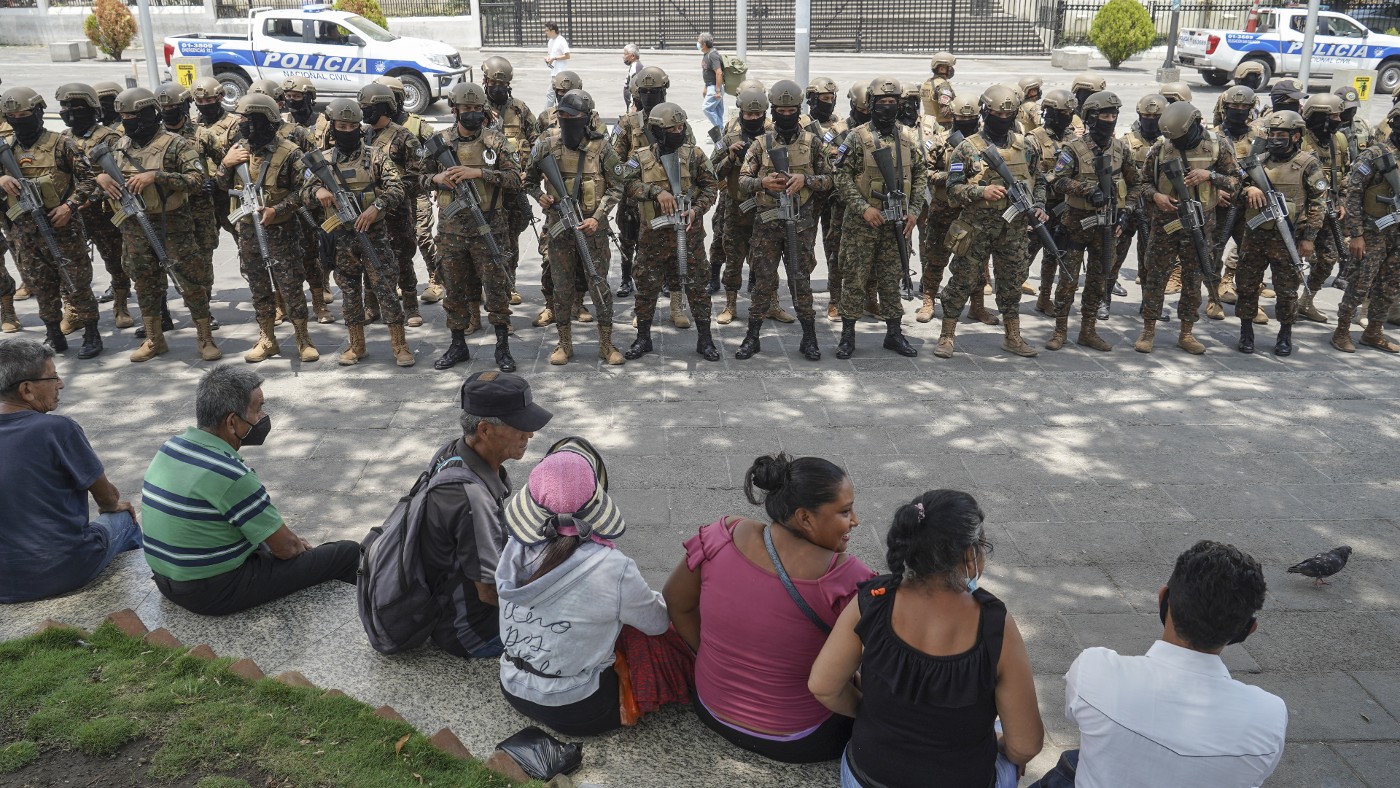What’s happening in El Salvador?
Anti-gang crackdown has proven popular but China trade deal is causing concern

A free daily email with the biggest news stories of the day – and the best features from TheWeek.com
You are now subscribed
Your newsletter sign-up was successful
El Salvador has put an estimated 2% of the country’s adult population – roughly 100,000 people – behind bars as part of its war on gangs.
President Nayib Bukele’s crackdown has put the nation in an extended state of emergency with important constitutional rights set aside, as part of a mano dura, or “iron fist”, anti-gang policy.
The measures have drawn criticism from human rights groups but have won the backing of the majority of the Salvadorean public. But could a free trade deal with China unravel Bukele’s soaring popularity?
The Week
Escape your echo chamber. Get the facts behind the news, plus analysis from multiple perspectives.

Sign up for The Week's Free Newsletters
From our morning news briefing to a weekly Good News Newsletter, get the best of The Week delivered directly to your inbox.
From our morning news briefing to a weekly Good News Newsletter, get the best of The Week delivered directly to your inbox.
Why have so many people been arrested?
El Salvador is home to two of the world’s most notorious gangs: Barrio 18 and MS-13. Prior to the clampdown, around 70,000 active gang members had made it “virtually impossible” for politicians and other officials to “avoid engaging with them”, said the Crisis Group.
This year’s crackdown was “prompted by a bloody killing spree by gangs that saw dozens of people killed in March”, said CNN. During the country’s “bloodiest weekend in more than two decades”, more than 80 people were killed, added Al Jazeera. The MS-13 gang was blamed.
How have laws and rights been changed?
In the wake of the deadly weekend, a “state of exception” was imposed, which suspended key civil liberties and led to mass incarceration.
A report by Human Rights Watch and the NGO Cristosal found that there have been widespread abuses, including arbitrary arrests, due process violations, enforced disappearances, torture and deaths in state custody.
A free daily email with the biggest news stories of the day – and the best features from TheWeek.com
At least 90 people have died in custody since March, according to government statistics, and several of those who have been released from jail reported inhumane conditions and harsh treatment, including beatings and waterboarding.
In one incident earlier this month, the government of El Salvador sent 10,000 soldiers and police to seal off a town on the outskirts of the nation’s capital to search for gang members. “Starting now, the township of Soyapango is completely surrounded,” Bukele wrote on Twitter, as he shared videos showing ranks of soldiers.
The anti-gang measures were “supposed to be temporary”, said The New York Times, but, eight months on, “the military patrols the streets, mass arrests are a daily occurrence and jails are filled to the brim, edging El Salvador toward what is effectively a police state”.
Bukele has given the NGOs’ claims short shrift. Writing on Twitter, he said that “their fear is that we are successful, and that other governments will want to imitate us”.
What has public reaction been?
Public opinion appears to be mostly on his side: some 75% support the crackdown, according to a recent survey by the Public Opinion Institute at San Salvador’s Central American University.
Bukele himself is still basking in an 86% approval rating found during an October survey of 12 Latin American countries by CID Gallup, making him the most popular leader in the region.
He also points to encouraging crime figures: between January and the end of October, 463 people were killed in El Salvador, a 50% drop on the same period last year.
Why has the bitcoin crash hurt El Salvador?
Last month FTX, one of the largest cryptocurrency exchange platforms, filed for bankruptcy, prompting a dramatic fall in the price of bitcoin.
This “caused all eyes to turn to El Salvador”, explained DW, because Bukele had made bitcoin legal tender in 2021 and also invested a large part of the country’s fiscal reserves in the digital currency.
On the day the insolvency was announced, the vice-president, Félix Ulloa, said that China had offered to buy the country’s $21bn of foreign debt as part of a free trade agreement. A deal with Beijing could benefit El Salvador economically but there are fears that it “puts the country’s sovereignty up for sale”, said the news site.
Therefore, said DW, “uncertain” is “perhaps the word that best describes the current situation in El Salvador”.
Chas Newkey-Burden has been part of The Week Digital team for more than a decade and a journalist for 25 years, starting out on the irreverent football weekly 90 Minutes, before moving to lifestyle magazines Loaded and Attitude. He was a columnist for The Big Issue and landed a world exclusive with David Beckham that became the weekly magazine’s bestselling issue. He now writes regularly for The Guardian, The Telegraph, The Independent, Metro, FourFourTwo and the i new site. He is also the author of a number of non-fiction books.